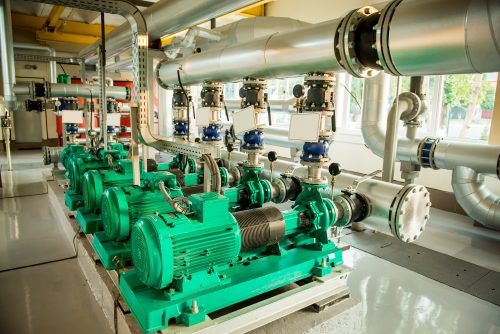
Business owners invest in boilers to generate heat for various purposes. Some will use boilers to provide heat in their office buildings, while others will use boilers to generate power for their industries. No matter the use, all boilers need to be in perfect condition to serve efficiently. The only way you can ensure this is by adopting maintenance practices.
Therefore, what are some of the maintenance habits you can adopt as a business? This article will address them herein; read on to find out more.
Inspect Pipes
Many pipes are connected to your boiler to transport heated water to where you require it. Therefore, you need to ensure they’re in perfect condition to deliver water efficiently.
The first piping system you need to check periodically is the pumps that feed water into your boiler. Manufacturers provide more than one pump, depending on the boiler you have. You won’t need to use them all at once most of the time. Due to this, you might not be in a position to tell if all the pipes are working. Therefore, make it a habit of practicing pump rotation every once in a while. This way, if one of the pumps fails to work, you can confidently replace it with another one, assured it’ll work efficiently.
Besides the feed pumps, you need to inspect the overflow pipe located outdoors. Check to see if there’s any dripping through it. A dripping pipe indicates that there’s an issue with your boiler. It could be associated with the pressure of your boiler. Therefore, adjust your boiler’s pressure accordingly and see if the dripping has stopped. If it hasn’t, you need to call your provider to assess the situation.
Consider insulating your pipes to ensure they always run efficiently, especially in the cold season. With no insulation, your pipes are likely to burst due to the internal pressure of the pipe. Consider insulating them through lagging. This way, you prevent water from freezing inside the pipes, and there’ll also be less heat loss, ensuring your boiler is still delivering hot water.
Use Fresh Feed Water
For boilers to run, you need to supply them with water.
The quality of water you use is crucial since it determines the efficiency of your boiler. Using water that’s not fresh might be filled with impurities and gases that could affect your unit. How? The gases dissolved in the water, such as carbon monoxide, will corrode the inner lining of your pipe. But, the damage doesn’t end here; due to corrosion, your water will be contaminated with iron, which significantly reduces your water quality.
Some of the impurities from the water could be solid matter that’ll form scum on your pipes. With this, your boiler might run inefficiently since there’ll be no way of cooling the parts covered with the scale.
Use freshwater to avoid this since it’s neutral and doesn’t contain many impurities. Even when using freshwater, it’s essential to clean it before it gets into the boiler. You can utilize methods such as reverse osmosis to eliminate any solid matter. With your boiler running efficiently due to the use of freshwater, it’ll meet your needs, making it a viable investment.
Ensure Proper Ventilation
For a boiler to run efficiently, there needs to be adequate airflow.
Adequate airflow will ensure proper cooling of your boiler components, such that they won’t break down due to excessive heat. Also, your boiler won’t overheat in its running process.
Therefore, you need to provide an adequate air supply in the room where you’re storing your boiler. You don’t necessarily have to put in place many windows to achieve such a purpose. Consider installing several ventilation units around the boiler room, both at the bottom and top. This way, there’ll be a lot of incoming cold air, and hot air can exit as well.
Service Your Boiler Frequently
Like any other appliance, servicing is needed for your boiler to ensure it’s working properly.
You can schedule this once or twice a year. To reduce the costs associated with servicing, source your boiler from a provider with a warranty. With this, you don’t need to worry about servicing; they’ll know when to turn up and assess your boiler system. However, if this isn’t the case, you can still get quality servicing from a reputable and certified provider in your locality.
During servicing, your provider will inspect each system, whether big or small, to ensure it’s working appropriately. If they discover an issue, they’ll fix it promptly.
By servicing your boiler frequently, you’ll be ahead of future inconveniences, such as breakdowns. This is because your provider will identify issues and resolve them in their early stages, where if waited upon, they can bring havoc to your business and cause a lot of downtime.
Conclusion
The guide above will help prevent downtime that would occur due to unexpected breakdowns. Therefore, consider implementing these tips religiously, and you never have to worry about your boiler malfunctioning in the middle of crucial operations.
Interesting Related Article: “Protecting Your Office Building During The Winter Weather“

